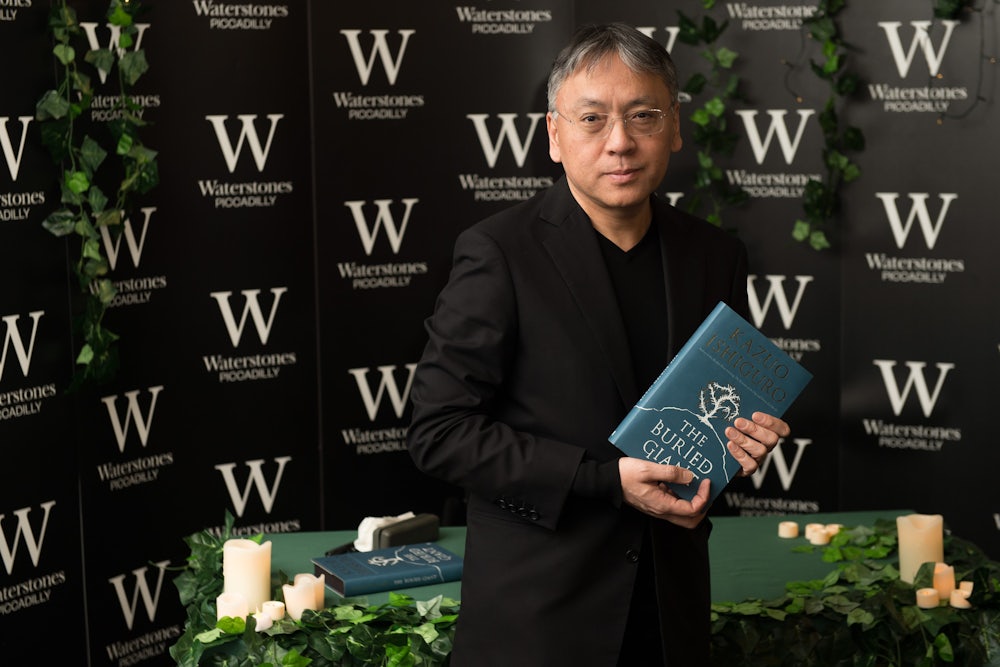Nothing could top Bob Dylan winning the Nobel Prize last year, which the Nobel Committee for Literature surely knew. Many, myself very much included, thought that the Committee would return to its roots and award an Estonian poet or a Madagascan flash fiction writer. Instead, it awarded the Nobel Prize to the globally famous British novelist Kazuo Ishiguro, author of The Remains of the Day (starring Anthony Hopkins), Never Let Me Go (starring Keira Knightley), and, most recently, The Buried Giant.
In one area the Committee did stick to tradition: the largely meaningless blurb that accompanies the announcement of each Nobel Laureate. Ishiguro is being honored for uncovering “the abyss beneath our illusory sense of connection with the world.” Ishiguro’s novels, which often deal with tangled questions of memory and identity, are often set in slightly off-kilter versions of our own world. They feature children who live their short lives as organ farms, or an elderly couple wandering through Arthurian England. Nearly all of Ishiguro’s works are about confronting some horror, large or small, in the past, most often World War II.
It’s odd for the Nobel Prize in Literature to go to someone who is both really famous and has largely avoided Nobel speculation. Ishiguro caps a hat trick of unexpected choices for the Nobel Prize in the last three years: First, the Belarusian oral historian Svetlana Alexievich, then the American songwriter Bob Dylan, and now the most obvious Nobel pick of the three, who, nevertheless, no one saw coming.
